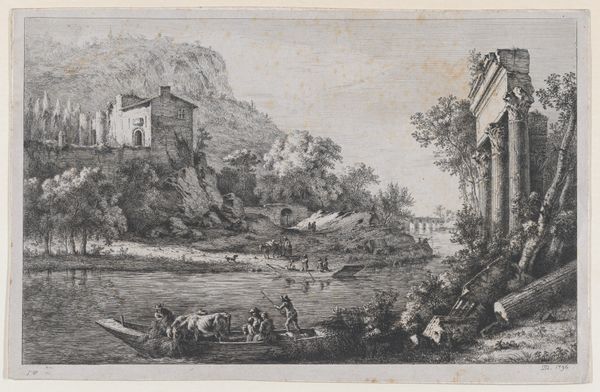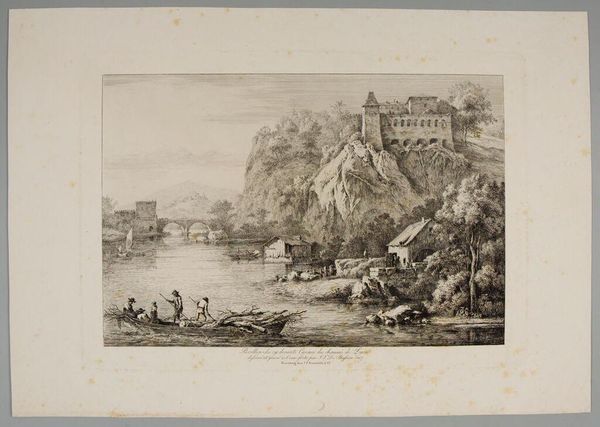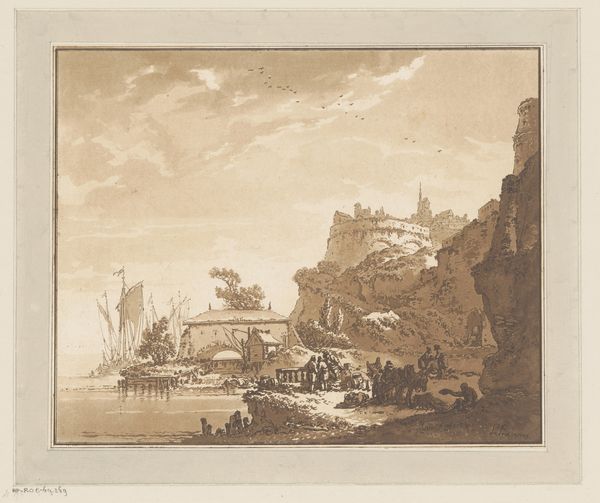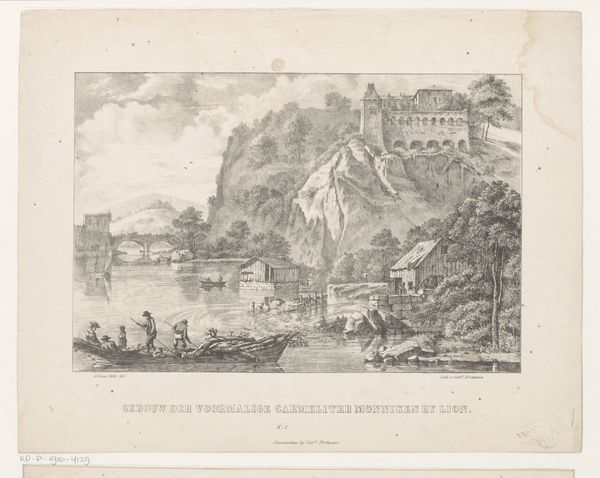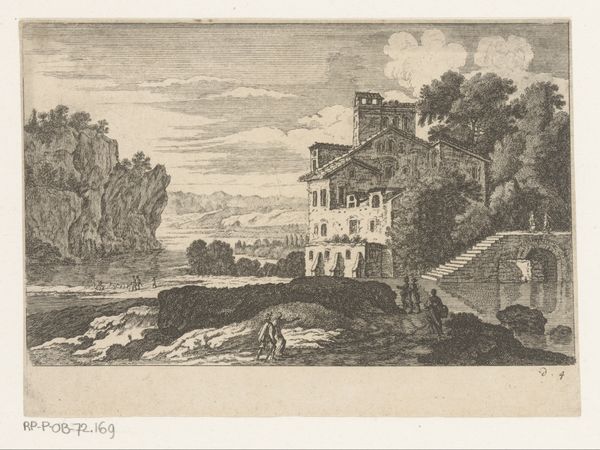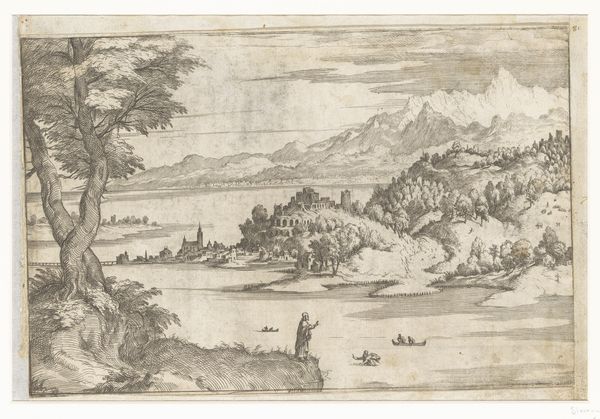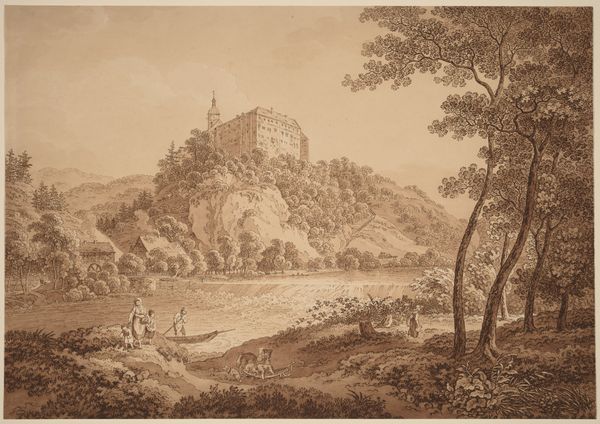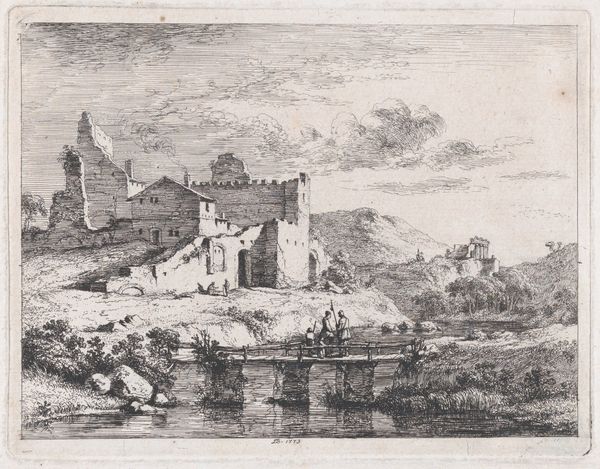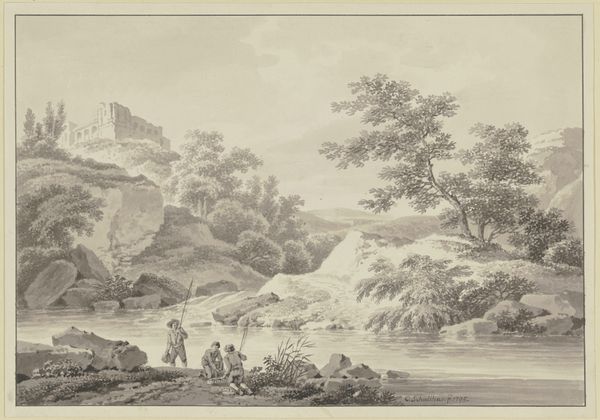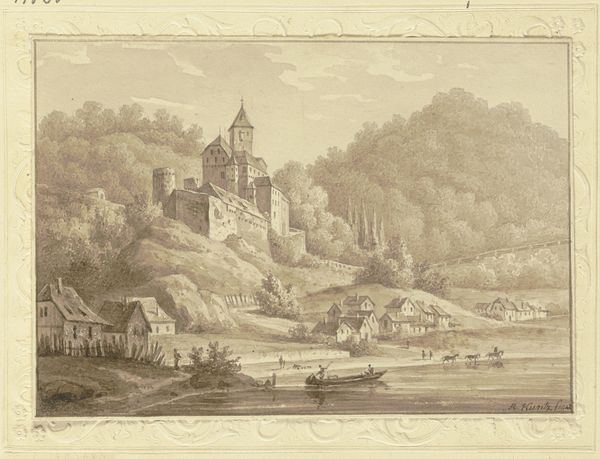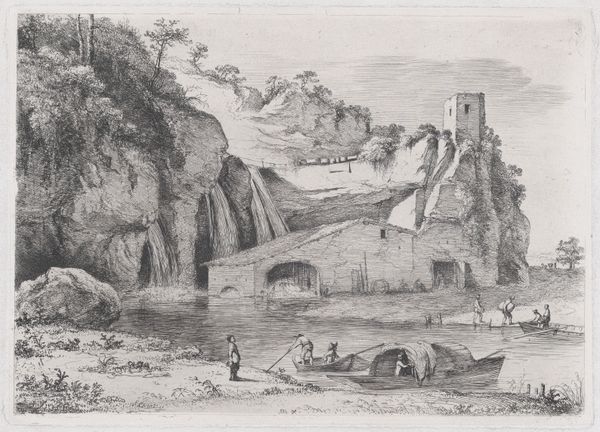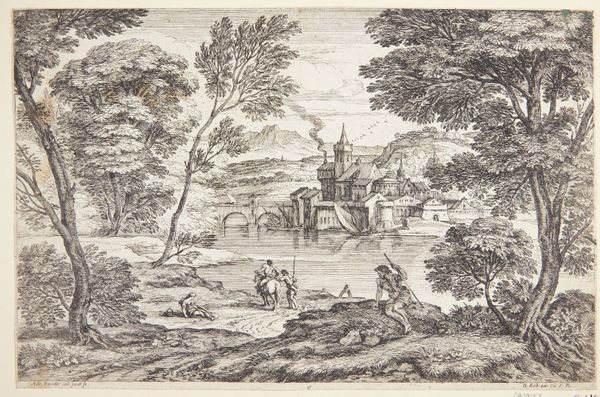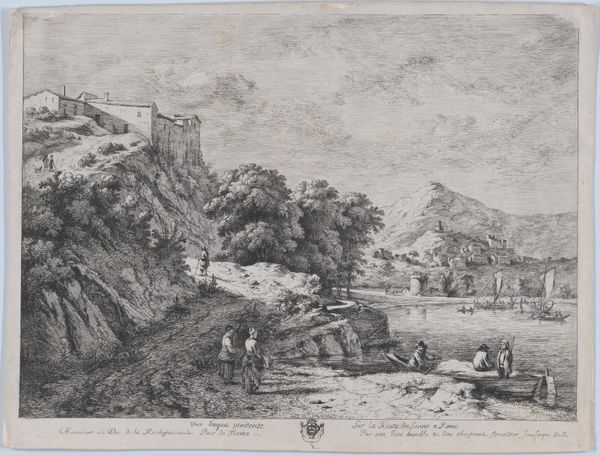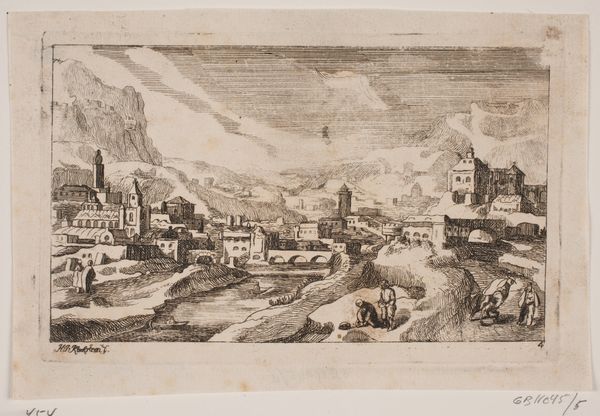
View of the Convent of the Barefooted Carmelites at Lyon 1807
0:00
0:00
drawing, print, etching, engraving
#
tree
#
drawing
#
boat
#
neoclacissism
# print
#
etching
#
human-figures
#
landscape
#
house
#
romanticism
#
human
#
cityscape
#
engraving
Dimensions: Sheet: 10 1/4 × 14 7/16 in. (26 × 36.6 cm) Plate: 9 5/8 × 13 11/16 in. (24.4 × 34.7 cm)
Copyright: Public Domain
Jean Jacques de Boissieu created this print of the Convent of the Barefooted Carmelites at Lyon using etching, a printmaking technique that relies on acid to bite into a metal plate. Look closely, and you can see the effect of this process in the finely textured lines that define the image. The etching process itself speaks to a society that valued precision and reproducibility. The skilled labor of the artist, carefully manipulating the acid and tools, contrasts with the seemingly effortless image. Yet, the scene depicts a world where labor is anything but effortless. We see figures working on the river, perhaps transporting goods or materials. The print, therefore, becomes a mediation on labor itself, both the artist's and that of the everyday people depicted. It challenges us to consider the amount of work involved in the production process. The value of this print is the way it captures a moment in time, while also reflecting the complex social and economic realities of 18th-century France.
Comments
No comments
Be the first to comment and join the conversation on the ultimate creative platform.
